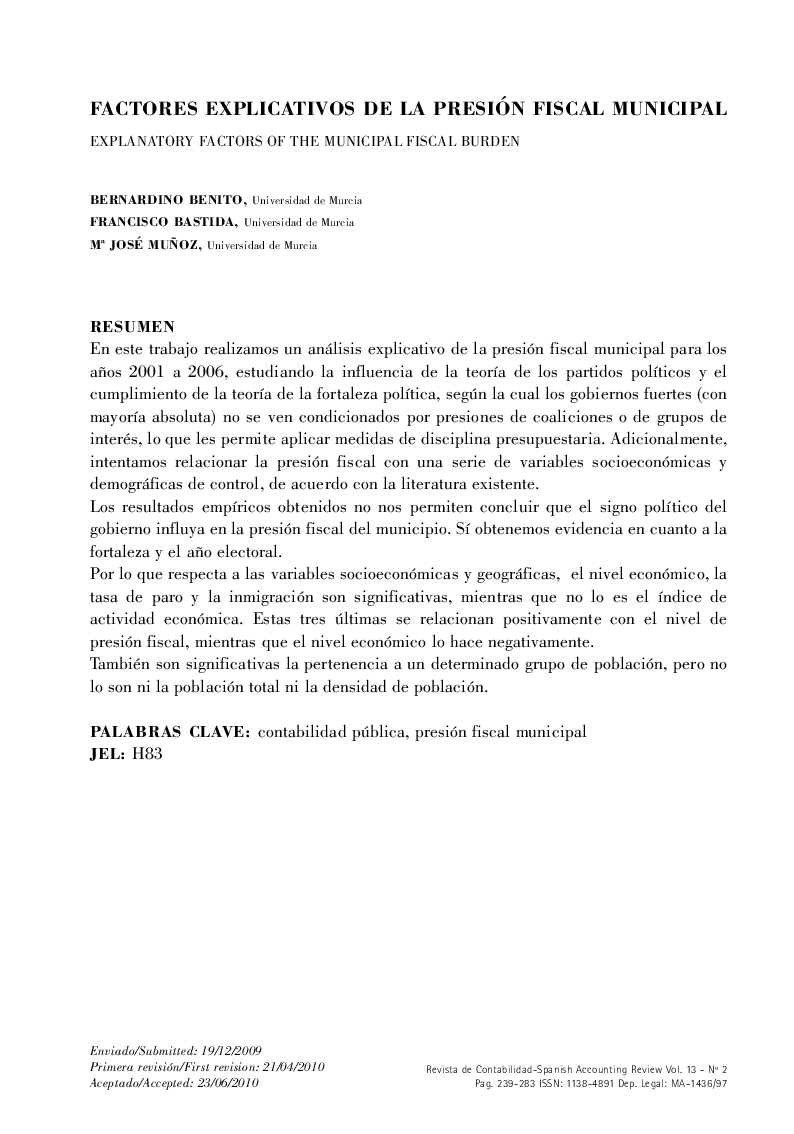| Article ID | Journal | Published Year | Pages | File Type |
|---|---|---|---|---|
| 1006903 | Revista de Contabilidad | 2010 | 45 Pages |
ResumenEn este trabajo realizamos un análisis explicativo de la presión fiscal municipal para los años 2001 a 2006, estudiando la influencia de la teoría de los partidos políticos y el cumplimiento de la teoría de la fortaleza política, según la cual los gobiernos fuertes (con mayoría absoluta) no se ven condicionados por presiones de coaliciones o de grupos de interés, lo que les permite aplicar medidas de disciplina presupuestaria. Adicionalmente, intentamos relacionar la presión fiscal con una serie de variables socioeconómicas y demográficas de control, de acuerdo con la literatura existente.Los resultados empíricos obtenidos no nos permiten concluir que el signo político del gobierno influya en la presión fiscal del municipio. Sí obtenemos evidencia en cuanto a la fortaleza y el año electoral.Por lo que respecta a las variables socioeconómicas y geográficas, el nivel económico, la tasa de paro y la inmigración son significativas, mientras que no lo es el índice de actividad económica. Estas tres últimas se relacionan positivamente con el nivel de presión fiscal, mientras que el nivel económico lo hace negativamente.También son significativas la pertenencia a un determinado grupo de población, pero no lo son ni la población total ni la densidad de población.
This paper evaluates the municipal fiscal burden (MFB) for the years 2001–2006. We focus on two theories: the partisan politics and political strength. The former posits that left parties require higher taxes. According to the latter, strong governments are able to apply fiscal adjustments in that interest groups cannot press on these governments. In addition, we relate the MFB with some socioeconomic and demographic factors, in agreement with the extant literature. The empirical results do not indicate that the political orientation of the municipal government impacts the fiscal burden. However, evidence is found in relation with the strength of the municipal government and the electoral year. As far as socioeconomic/demographic variables are concerned, the economic level, the unemployment rate and the immigration significantly and affect the tax burden. The two latter impact positively, while the former impacts positively on the MFB. The classification of municipalities according to population thresholds, which stems from the legal obligation to provide certain services, has an effect on the MFB. However, neither total population nor population density impact the MFB.
